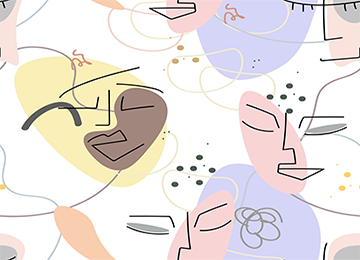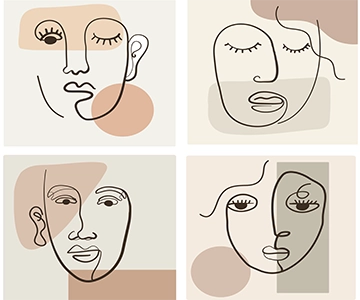'Unorthodox' and Vaginismus, a psychosexual perspective
I live in Hackney, the most diverse borough in the UK. One of my neighbouring cultural pockets is of the Hasidic Jewish community in Stamford Hill. I don’t think I’m alone in confessing to a fascination with closed religious communities. So when I heard there was a Netflix series based on a similar community in New York, I was intrigued.
This series is based on the memoirs of Deborah Feldman’s book ‘Unorthodox: The Scandalous Rejection of My Hasidic Roots ‘. What specifically drew me to this series is its depiction of sex and the role sexual relations play within the marriage parameters of the traditional community Deborah was brought up in.
The protagonist, ‘Esty’, who at 19 becomes a bride of an arranged marriage, understands that her primary duty to her new husband is to bare him children. Sexual pleasure, if at all, is of secondary importance. Rather than developing a loving and supportive intimate relationship, the stress is placed squarely on the importance of keeping her husband happy. One year after the wedding she is still struggling to have penetrative sex with her husband. In desperation she arranges a meeting with the community’s ‘marriage coach’ and is told she has vaginismus. She is given vaginal dilators and told to do her ‘exercises’. This is a clinical solution to the problem that lays the fault with Etsy and her inability to fulfil the role that has been ascribed to her. Her possible mental and emotional issues are disregarded as of no consequence.
As a psychosexual therapist I have treated several women with vaginismus, both single and married and from various cultural/religious backgrounds. Psychosexual dysfunctions do not discriminate. However, women who internalise passive gender roles or have negative attitudes toward sexuality may be at greater risk of experiencing sexual problems. What ‘Unorthodox’ explores are feelings around the institutionalisation of marriage. Esty’s story is one of rebellion and freedom. She has an inner struggle with the constraints and pressure from her family and community. What is meant to be a sacred space between husband and wife, instead becomes the source of community gossip. Their matrimonial bedroom becomes a public arena that is metaphorically invaded by her mother in law and the entire community. It is no surprise then that the metaphorical gates to her vagina close. To quote sex therapist, Stephen Snyder, ‘the sexual self is very honest, it can’t hide its feelings or pretend. It also has a limited vocabulary, to either yes or no.’ So when certain feelings are being suppressed, whether you are conscious of it or not, the body will often express this for you and with Etsy it manifested in vaginismus. Not all women who experience vaginismus are feeling suppressed in their marriage, for some it can be linked to unresolved feelings about ones body, sexuality and/or the vulnerability that comes with intimate relationships. It can also be purely physical, however, the mind-body connection is a powerful component in resolving most psychosexual difficulties.
It would have been very rewarding to work with a couple like Esty and her husband, and it’s a shame that (SPOILER ALERT) they were unable to resolve their difficulties and perhaps salvage their marriage. I couldn’t help but feel sad by this ending and wondered how many relationships, secular or non secular, have come to an abrupt end due to something that could potentially be worked through, explored and better understood. Because to give a voice to what the body is communicating can be healing for both partners.




